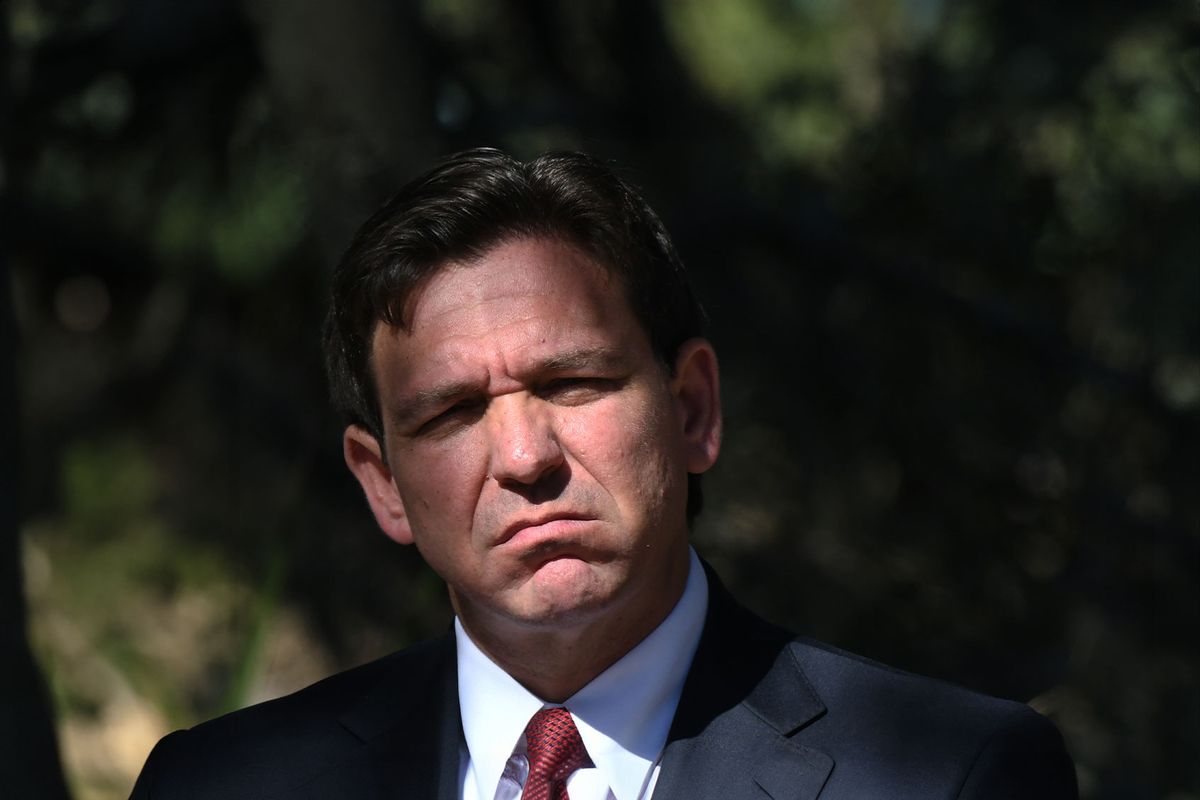In December, Mallory McManus, a spokeswoman for the Department of Children and Families in Florida — which administers the federal school lunch program in the state — told reporters that the state planned on refusing over $250 million dollars in new federal food assistance money.
That money, which was available through the US Department of Agriculture’s new SUN Bucks program, would have given $120 of additional summer grocery money to the parents of the 2.1 million school-aged children who receive free or reduced-price lunches throughout the school year in Florida. As food insecurity experts have established, child hunger spikes during the summer because millions lose access to the school breakfast, lunches and afterschool meals they receive during the regular school year.
“We anticipate that our state’s full approach to serving children will continue to be successful this year without any additional federal programs that inherently always come with some federal strings attached,” McManus said.
It’s unclear what exactly the state’s opposition was; according to the Orlando Sentinel, running the new program would have cost Florida $12 million in administration costs, a fraction of the $250 million dollars received in return. However, a fear of “federal strings” is an attitude that’s now seemingly baked into Florida politics thanks largely to Governor Ron DeSantis, who, during his tenure, has voiced opposition to what he perceives to be governmental overreach in arenas ranging from so-called “arbitrary [C02] emissions targets” to the “woke corporate monitoring” of Floridians’ personal finances.
Yet despite McManus’ assurances that Florida had enough resources to provide for its hungry children, advocates from the state say that’s not actually the case and that that data shows hundreds of thousands of children likely are experiencing food insecurity.
Now, DeSantis has just a month to decide whether he’ll make the same mistake again.
As Salon Food’s Joy Saha reported in February, Florida wasn’t the only state that chose not to participate in the SUN Bucks, also called Summer EBT, program. The benefits come in the form of pre-loaded cards that families can use specifically to purchase groceries. Eligible families receive $40 per child for three months. Thirty-five states, all five U.S. territories and four tribes opted into Summer EBT, per the Associated Press, while 15 states — all Republican-governed — chose not to opt in for this summer.
We need your help to stay independent
Most, like Florida, cited cost and existing programs that already feed children during the summer as reasons they wouldn’t be participating, though there were some outliers; for instance, in Iowa, Gov. Kim Reynolds said in a news release that an EBT card “does nothing to promote nutrition at a time when childhood obesity has become an epidemic,” a stance Democratic Sen. Izaah Knox of Des Moines characterized as “cruel and short-sighted.”
On May 21, Allison Johnson, the program director of ParentsTogether Action, launched a petition calling for the governors of the states that turned down the program to reconsider ahead of the August 15 deadline for officials to notify the U.S. Department of Agriculture whether they will partake in the summer of 2025.
“We were hearing just a lot of frustration, and, frankly, anger from families who are finding right now money is not going as far at the grocery store, and it’s already sort of hard enough making sure that there’s enough food on the table to feed their families,” Johnson told the Florida Phoenix.
She continued: “So then there is this sort of additional added insult to injury that this $120 per child would have been available, and it is available for most children across the country, but that certain governors had just said ‘no thank’ you to the money.”
Sky Beard, the Florida director for the non-profit organization No Kid Hungry, told the Orlando Sentinel that “every summer is a hungry time for kids.”
“The perception put forward by the state is that there is no need for other programs in the state,” Beard said. “I wish it were true!”
According to Feeding America, more than 2.3 million people are facing hunger in Florida and of that more than 613,000 are children; additionally, reporting from the Food Research & Action Center shows that fewer than 10% of the 672,324 elementary school children in Florida who get free or reduced-price lunches during the school year actually receive a summer lunch.
While Florida administers other federal programs like Summer Break Spot — which allows organizations “to serve nutritious meals to children in Florida while school is out” from locations like community centers and churches — these aren’t as convenient as pre-loaded grocery cards, especially for working parents.
In addition to the petition from ParentsTogether Action, which has over 3,500 signatures, 185 groups from across Florida have sent a letter to DeSantis and other state leaders urging them to apply for next year’s SUN Bucks program.
“This is a statewide concern that affects colleagues, friends and families in our communities that are really challenged,” Beard told the Orlando Sentinel. “It would be highly unfortunate that Florida didn’t take advantage of that in 2025.”
Read more
about this topic



Shares